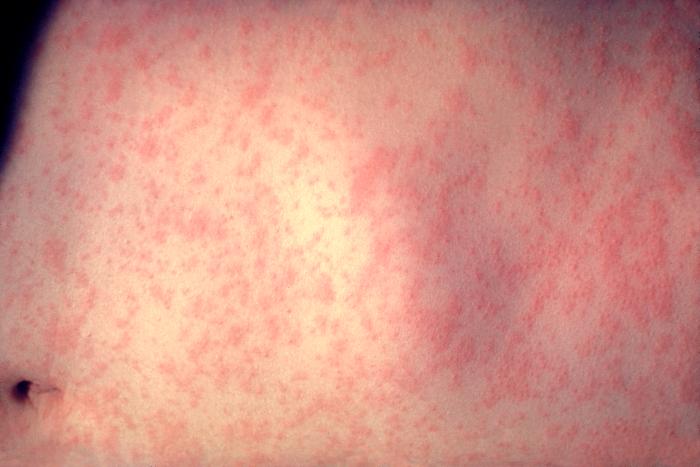Measles – What You Need To Know
While the incidence of measles has markedly decreased since the introduction of the vaccine in 1963, outbreaks continue to occur in both developed and developing countries. In the decade before the vaccine was available, almost all children contracted measles by the time they were age 15. In addition, each year among the reported cases, an estimated 400-500 people died; 48,000 were hospitalized and 1,000 suffered encephalitis (swelling of the brain) from measles. To date in 2018, we have had approximately 107 preliminary reports of measles outbreaks around the country, including three recently reported cases in Pinellas county, which all occurred in unvaccinated children.
The symptoms of measles typically include a high fever, cough, nasal congestion, runny nose, along with red, watery eyes. The earliest physical sign of measles are actually noticeable on the skin and mucous membranes (lips and mouth) and present as tiny white spots (“Koplik spots”) that appear inside the mouth.

Shortly thereafter (3-5 days) a pink to red slightly bumpy rash can break out on the body. Typically, the rash begins on the forehead, hairline, and behind the ears and then spreads down the body and fades by the fifth day.

Measles is a highly contagious virus. It lives in the nose and throat mucous of an infected person and can be spread to others through coughing and sneezing, breathing contaminated air, or touching an infected surface. Complications can be most severe for children younger than 5 years of age and adults older than 20 years of age, although measles infection may be serious in all age groups. The most common complications are ear infections and diarrhea. Severe complications include pneumonia (lung infection) and encephalitis. Long term complications include death and fatal disease of the central nervous system.
There is no specific antiviral therapy for measles, but some complications may require hospitalization. If you think you have measles you should immediately call your doctor. Prevention of measles by vaccination is the most effective way to greatly reduce the likelihood of getting infected by measles. In addition, fully vaccinated people who contract measles are much more likely to have a milder illness.
{Images courtesy of the CDC.gov website}

 Previous Post
Previous Post Next Post
Next Post